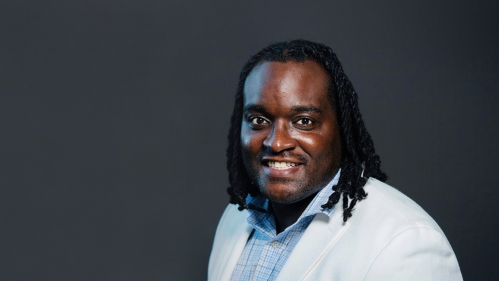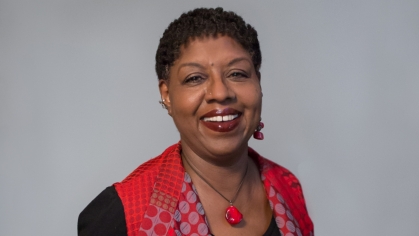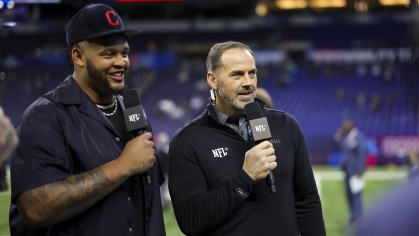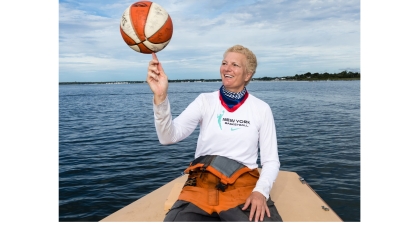Thomas Jones has a dream—to work in corporate America and to try to make jobs more accessible to minority candidates in leadership positions. Last year, he took a step toward that goal when he earned a bachelor’s degree in human resources management from Rutgers University–New Brunswick, where he learned about employment law and diversity, equity, and inclusion. He is now on track to complete a master’s degree in industrial and labor relations by 2024 at Cornell University.
He has forged this promising future despite a past that holds two felony convictions.
The stigma of having been incarcerated is not something many would openly share. But Jones SAS’22 feels it’s important to tell his story, to inspire other students who may be going through a similar situation and to increase awareness among those who don’t know what their classmates might be going through.
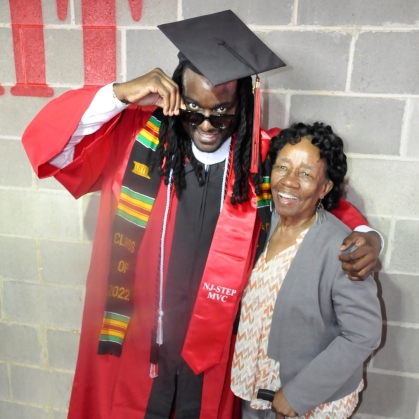
Starting in his teens while in high school in Piscataway and into his 20s, Jones struggled with the challenges that come with street life. Though he says he comes from “good bones”—his father is an Iraqi War veteran, and his mother is a social worker who cared for emergency foster children—he was surrounded by bad influences that led him to his first incarceration for unlawful possession of a handgun. He was sentenced to three years in prison and was released after one year for good behavior. The second was for the same charge—he said he needed to protect himself from the violent crime around him, but as a convicted felon he could not receive a legal permit. For the second conviction, a judge sentenced him to seven years, of which he served half.
Though it would have been easy for him to feel like his dream was over, Jones did not give up. With the help of the NJSTEP/Mountainview program, he got the support he needed to transition from incarceration to campus life, ultimately graduating with a 3.47 GPA despite the trials of the pandemic.
Today, he wants to share his experiences to help others avoid making the same mistakes.
Changing his life’s narrative
I was often asked, “Hey, why are you trying to get a degree when you know you have a background? You know you’ll never be able to work in corporate America.”
I’d say, “Let me see if somebody’d be willing to listen to my journey and my pathway to education as a way of change.” As a way of changing old habits, changing old friends, changing environments.
[Growing up] my mom would take in emergency foster children. It was always crowded, and it was difficult for me to adapt. After my first run-in with the law in my early 20s, I served one year in prison in 2010.
Two years later, my son was born at 1.9 pounds. He spent his first six months in the NICU and had partial hearing loss in his right ear. I was working in a warehouse, often double shifts, a single father, going to school full-time at night, taking him back and forth to ENT doctors. It was definitely a challenge.
From 2016 to 2019, I served time in prison and then at halfway houses, where I enrolled in Essex County College in Newark. I was trying to change my life, trying to change that narrative, trying to recreate my story because I didn’t want it to just be a series of incarceration after incarceration.
From incarceration to campus life
While at Essex, I was accepted into Rutgers and in August 2019, I was released, two weeks before classes started.
Rutgers was a little intimidating. I had to find housing, start classes, and hit the ground running. I worked full-time during the day and went to school full-time at night.
While I was at Rutgers, I slept four hours a night. You have to be uncomfortable to get comfortable one day. So I said, If I sleep for only four hours that gives me four extra hours to either study or organize my day or work. I just had to live on high frequency.
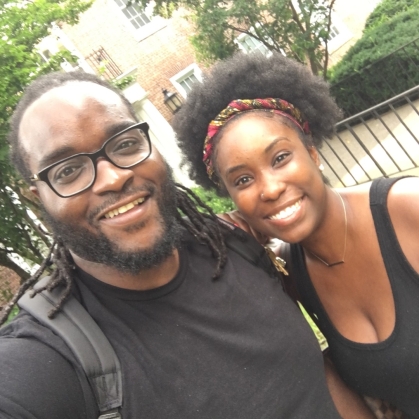
I felt that as long as I stay positive, organize myself, keep on an educational path, doors of opportunity will just keep on opening. They haven’t stopped opening. And I credit that to the Mountainview Program at Rutgers. They’re doing amazing things for justice-impacted individuals on campus.
Beyond just the suggestion box
Majoring in human resources was a no-brainer. I love people, fighting for people’s rights. I want to go beyond just the suggestion box, shaping diversity, equity, and inclusion initiatives. Access is also a barrier, especially with the technology gap that we have in a lot of our communities.
The perfect dream job for me would be as chief people officer or a chief diversity officer in a major corporation.
I don’t make excuses. I take full ownership of my actions. And it’s my dream to correct my broken steps and use education as a pathway to a better future.
What I Know Now is a series featuring alumni reflecting on their careers and their time at Rutgers.
Support Students
Please consider supporting the NJ Scholarship and Transformative Education in Prisons (STEP) program through a gift to the Rutgers School of Criminal Justice. Gifts support Rutgers programs and students on all three campuses.
Give Now